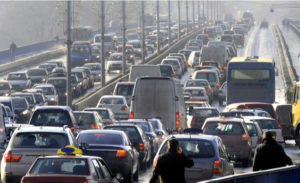
Like drivers in the U.S., Europeans prefer SUVs over tiny cars with no speed or cargo space. Those understandable preferences though are bumping up against strict goals the EU has set for lowering automobile-generated emissions of CO2. William Boston and Andrew Barnett report for The Wall Street Journal, writing:
In the early years of Europe’s effort to curb emissions, manufacturers were able to rely on growing engine efficiency as well as regulatory exemptions and loopholes to cut emissions. But as the goal became more demanding, pressure rose to develop new technologies, especially electric vehicles and hybrids.
In Europe, particularly in Germany, car makers also bet on diesel, which emits less CO2 than gasoline. But after Volkswagen AG was exposed for cheating to conceal the amount of hazardous fine particles produced by its diesel engines, consumers turned their back on the technology.
The lack of affordable electric vehicles meant many consumers opted instead for gasoline-powered cars. This shift and the new love affair with SUVs triggered a rebound in CO2 emissions.
EV sales are rising but remain a niche, with about 7% of the European market.
“If you’re a large luxury car maker, this challenge becomes bigger,” Daimler Chief Executive Ola Källenius told reporters earlier this month. “But we are within striking distance of meeting the targets for 2020.”
Environmental lobbyists doubt manufacturers’ ability and determination to get back on track and warn against any attempt to water down the EU’s goals.
Read more here.



